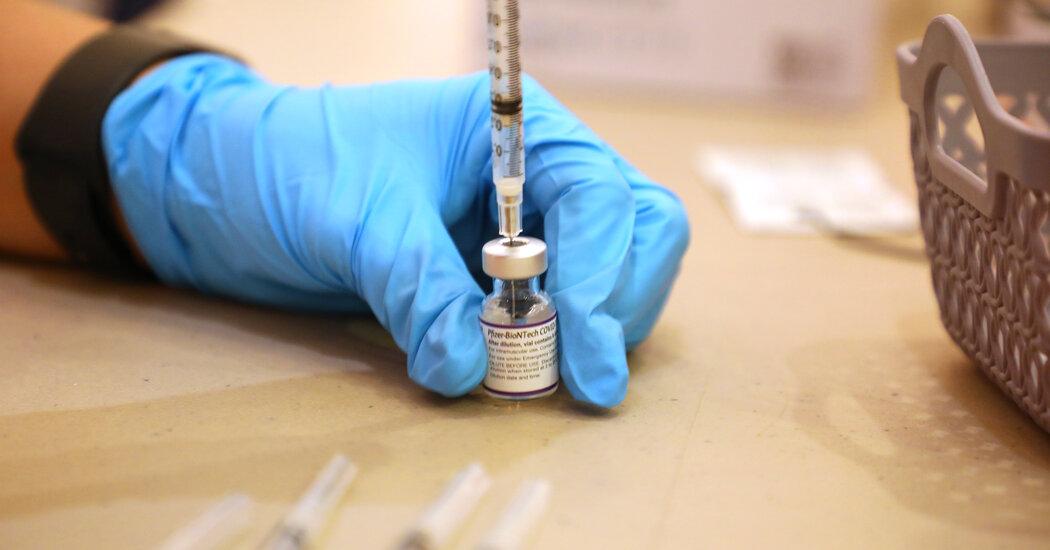WASHINGTON — The Food and Drug Administration is planning to allow Americans to receive a different Covid-19 vaccine as a booster than the one they
WASHINGTON — The Food and Drug Administration is planning to allow Americans to receive a different Covid-19 vaccine as a booster than the one they initially received, a move that could reduce the appeal of the Johnson & Johnson vaccine and provide flexibility to doctors and other vaccinators.
The government would not recommend one shot over another, and it might note that using the same vaccine as a booster when possible is preferable, people familiar with the agency’s planning said. But vaccine providers could use their discretion to offer a different brand, a freedom that state health officials have been requesting for weeks.
The approach was foreshadowed on Friday, when researchers presented the findings of a federally funded “mix and match” study to an expert committee that advises the Food and Drug Administration. The study found that recipients of Johnson & Johnson’s single-dose shot who received a Moderna booster saw their antibody levels rise 76-fold in 15 days, compared with only a fourfold increase after an extra dose of Johnson & Johnson.
Federal regulators this week are aiming to greatly expand the number of Americans eligible for booster shots. The F.D.A. is expected to authorize boosters of the Moderna and Johnson & Johnson vaccines by Wednesday evening; it could allow the mix-and-match approach by then. The agency last month authorized booster shots of the Pfizer-BioNTech vaccine for at least six months after the second dose.
An advisory committee of the Centers for Disease Control and Prevention will take up the booster issue on Thursday; the agency will then issue its own recommendations. By the end of the week, tens of millions more Americans could be eligible for extra shots.
The study presented to the F.D.A.’s advisory panel last week, conducted by the National Institutes of Health, suggested that Johnson & Johnson recipients might benefit most from a booster shot of the Moderna vaccine. A shot of the Pfizer-BioNTech vaccine also raised the antibody levels of Johnson & Johnson recipients more than Johnson & Johnson did, the study found, although not as much as Moderna did.
Both Moderna and Pfizer require two initial doses, separated by about a month. A Moderna booster also raised antibody levels in Pfizer recipients higher than a third injection of Pfizer’s vaccine did, while a Pfizer booster raised the levels in Moderna recipients about as high as a third Moderna shot.
Experts emphasized last week that the new data was based on small groups of volunteers and short-term findings. Only antibody levels — one measure of the immune response — were calculated as part of the preliminary data, not the levels of immune cells primed to attack the coronavirus, which scientists say are also an important measure of a vaccine’s success.
The study’s researchers warned against using the findings to conclude that any one combination of vaccines was better. The study “was not powered or designed to compare between groups,” said Dr. Kirsten E. Lyke, a professor at the University of Maryland School of Medicine, who presented the data.
While the research on mixing and matching doses is somewhat thin, even some scientists who have strongly criticized the Biden administration’s booster policy said that providers should be given a measure of discretion as the campaign ramps up.
“If you look at the data, it certainly looks like it might be better,” Dr. Paul A. Offit, the director of the Vaccine Education Center at Children’s Hospital of Philadelphia, said of Moderna or Pfizer boosters for Johnson & Johnson recipients. “I think we should move quickly on this, because it’s already happening.”
www.nytimes.com
